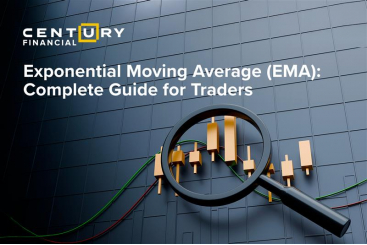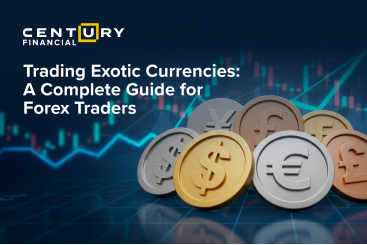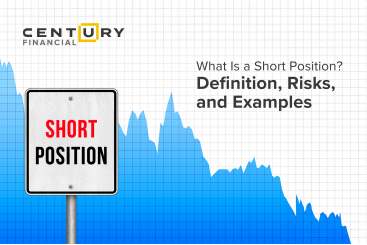
.jpg)
What Is the CAC 40 and its history?
The CAC 40 is the French stock market index that tracks the 40 most extensive French stocks based on the Euronext Paris market capitalization.
In 2007, Euronext completed its agreed merger with the New York Stock Exchange (NYSE) Group, forming NYSE Euronext. It continues to be a popular choice for investors and traders seeking exposure to the French market.
Not every company listed on the Euronext Paris can be part of the CAC 40 index. There are specific criteria that a company must meet to be included. These criteria include having a high market capitalization, a significant trading volume, and a strong presence in the French economy.
The following chart shows the history of the CAC 40 in the 21st century, highlighting the major fundamental events that shaped its price.
.png)
Evolution

Calculation of the price index
The index is calculated on a price return basis. It is based on the current number of shares included in the index of each constituent multiplied by the most recent price and subsequently divided by the divisor. The divisor was determined based on the index's initial capitalisation base and base level. The divisor is adapted because of changes in corporate actions and composition.
.jpg)
The index is calculated based on the most recent prices of transactions concluded on Euronext Markets. The index level is, in principle, published every 15 seconds. The index is calculated from 09:00 hours until Euronext Markets stops regular daytime trading on the days when the Euronext Markets are open for trading.
Trading the CAC 40 Index
Traders and investors can gain exposure to the French market by trading the CAC 40 index. This can be done through various financial instruments, such as futures contracts, options, exchange-traded funds (ETFs), and contracts for difference (CFDs).
In the Century Trader Platform, Therefore, traders may consider the following:
- Trading the France 40 CFDs.
- Trading the France 40 Futures.
- Trading the France 40-related ETFs.
- Trading the France 40 constituent Shares.
.png)
What companies are in the CAC 40 index?
Some of the big names on the CAC 40 index include LVMH, L’Oréal, Hermès, Total Energies and Sanofi. These are five of the 40 companies that are reviewed every quarter by an independent committee.


Luxury giant LVMH can weigh around 10% or more of the entire index. This means LVMH’s performance alone can significantly sway the CAC 40, making it a major player.
What affects the price of the CAC 40?
Commodity Prices
Due to its market-cap-weighted structure, the CAC 40 emphasises the value of its most prominent companies. Changes in the earnings of its largest constituents can heavily influence the index's price movements.
Central Bank Policies
France's central bank operates independently, but the European Central Bank (ECB) significantly influences the France 40 index due to France's adoption of the Euro and numerous multinational corporations in the CAC 40. The ECB's policies directly impact borrowing costs and spending behaviours among businesses and consumers in the Eurozone including France, consequently affecting the performance of the stock markets and the CAC 40 index.
Economical Events
Elections can have a significant impact on the CAC 40 index, causing fluctuations as seen during the French presidential election in 2017 between Le Pen and Macron. One can also witness the ongoing uncertainty due to the election happening in 2024. Significant events like global pandemics or farmers' strikes in France can negatively influence the French 40 index price.
Commodity Prices
Fluctuations in commodity prices can significantly impact the stock prices of relevant French companies, subsequently affecting the index's overall value. For instance, a decline in oil prices is expected to negatively impact the share price of oil and gas companies within the CAC 40 index.
Economic Data
The French economic health, as indicated by reports on inflation, employment trends, and GDP, is a pivotal determinant guiding monetary and fiscal policy decisions that ultimately shape the trajectory of the French stock market and the France 40 index price.
Why trade the CAC 40 index?
The CAC 40 is the easiest way to take a position on the French market. France ranks eleventh in the European Union in terms of GDP per capita with €35,500, the same as the EU average. It accounts for 17.2% of the EU's total GDP. In February 2024, France exported €50.3 billion worth of goods, while its imports amounted to €56.3 billion, equating to a trade deficit of €6 billion.
In the 33 years between February 1991 and June 2024, the CAC 40 index (in EUR) had a compound annual growth rate of 7.76% and a standard deviation of 18.04.
Historical performance of the CAC 40 index (in EUR).
.png)
There are several reasons to consider index trading and the CAC 40 specifically:
Liquidity: CAC 40 is a liquid market with a high trading volume, meaning traders should mostly be able to enter and exit trades with a minimum of slippage.
Volatility: Macroeconomic releases and fundamental drivers such as oil prices can move the CAC 40 price quickly, meaning significant opportunities – but also risks – for those in the know.
Proxy to European economy:Proxy to European economy: The CAC 40 Index can provide insight into the Eurozone’s financial health when read in conjunction with other European indices such as the DAX 30 and IBEX 35.
The Current situation
On July 7th, 2024, France elected 577 members of the National Assembly, in a surprising turn of events, the Left-Wing party, the New Popular Front, won the most seats but fell short of an absolute majority. The New Popular Front alliance secured about 180 seats, Ensemble secured about 160 seats, and National Rally converted about 140. A party would require 289 seats to form a majority in the National Assembly.
This marketing and educational content has been created by Century Financial Consultancy LLC (“Century”) for general information only. It does not constitute investment, legal, tax, or other professional advice, nor does it constitute a recommendation, offer, or solicitation to buy or sell any financial instrument. The material does not take into account your investment objectives, financial situation, or particular needs.
The opinions expressed by the hosts, speakers, or guests are their own and may change without notice. Information is based on sources we consider to be reliable; however, Century does not guarantee its accuracy, completeness, or timeliness and accepts no liability for any loss arising from reliance on this content.
Trading and investing involve significant risk, and losses may exceed initial deposits. Past performance is not indicative of future results. CFDs and other leveraged products are complex instruments that may not be suitable for all investors. Please ensure you understand how these products work, the associated risks, and seek independent professional advice if necessary.
Century is licensed and regulated by the UAE Capital Market Authority (CMA) under License Nos. 20200000028 and 301044.
Please refer to the full risk disclosure mentioned on our website.
.png)




__1439480927.jpg)




.png)
.png)
.png)
.png)


